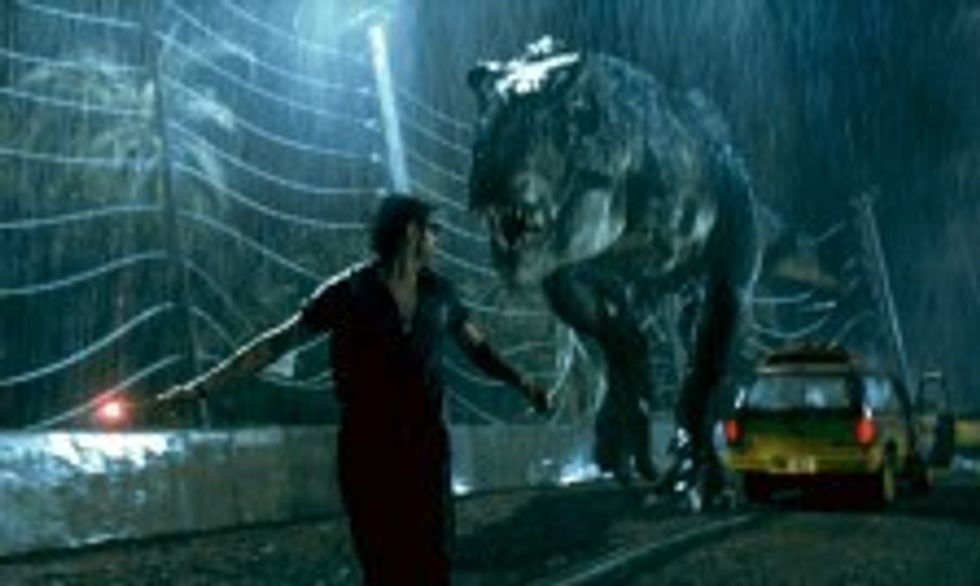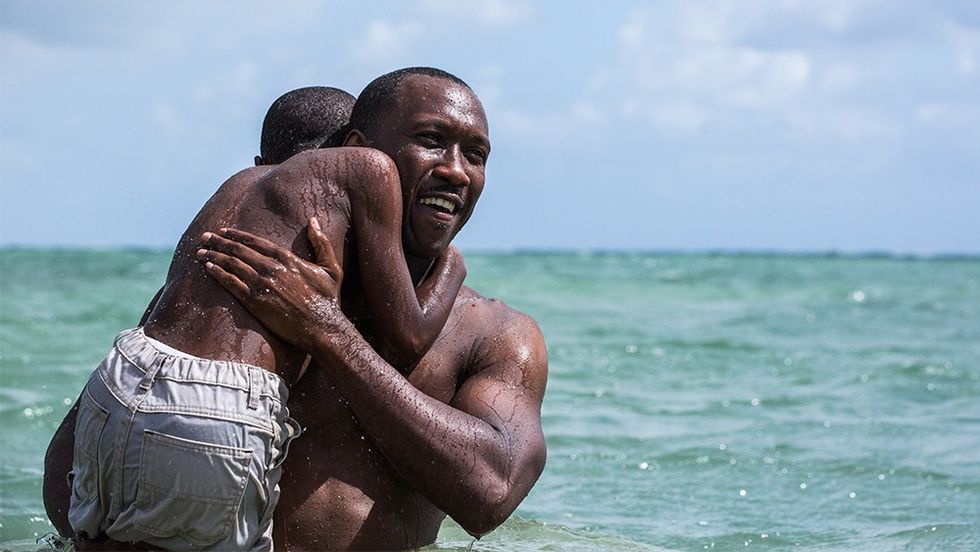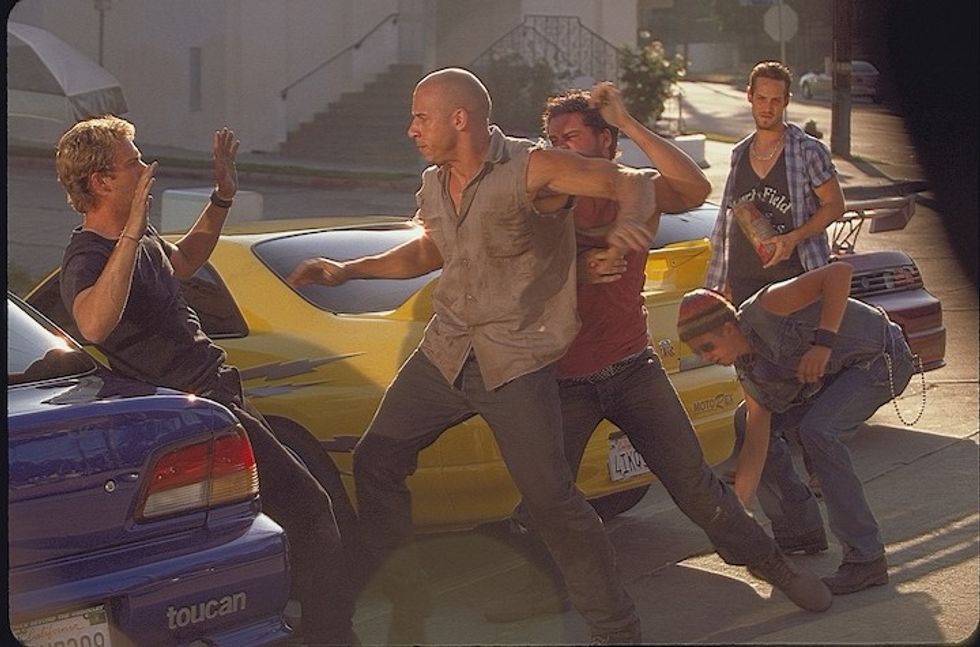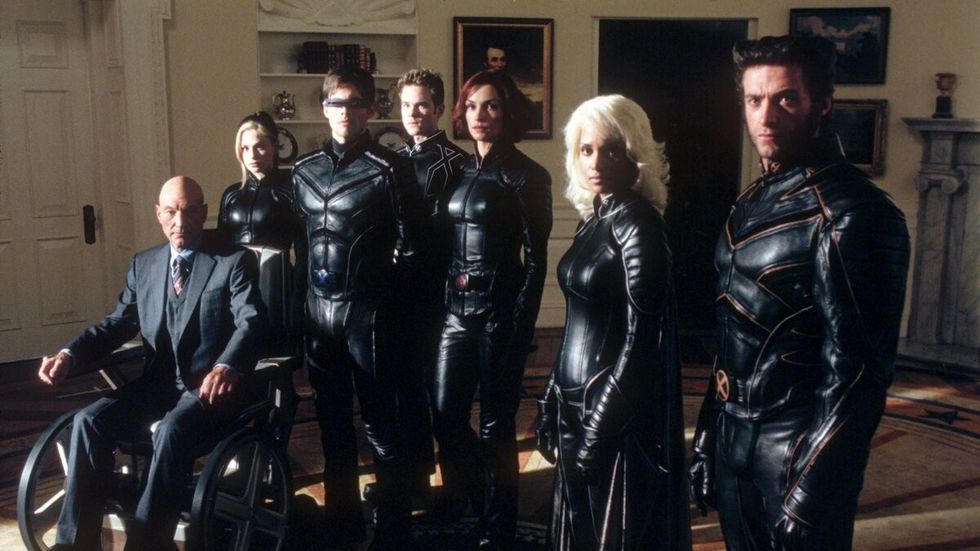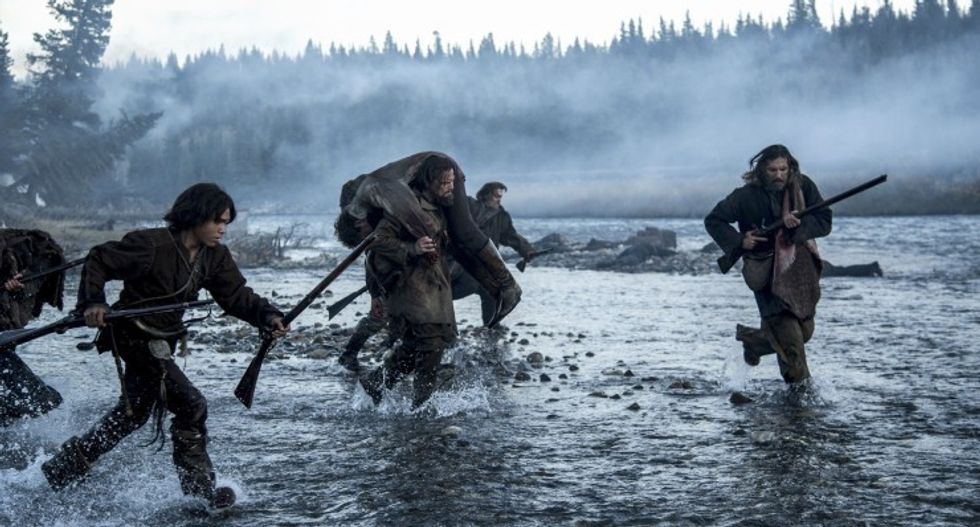Oscar-Winning Director Morgan Neville: 'Narrative Filmmaking is in a Rut, But Doc is Just Starting'
'Won't You Be My Neighbor' is about Fred Rogers, but it's also about the quiet radicalism of kindness.
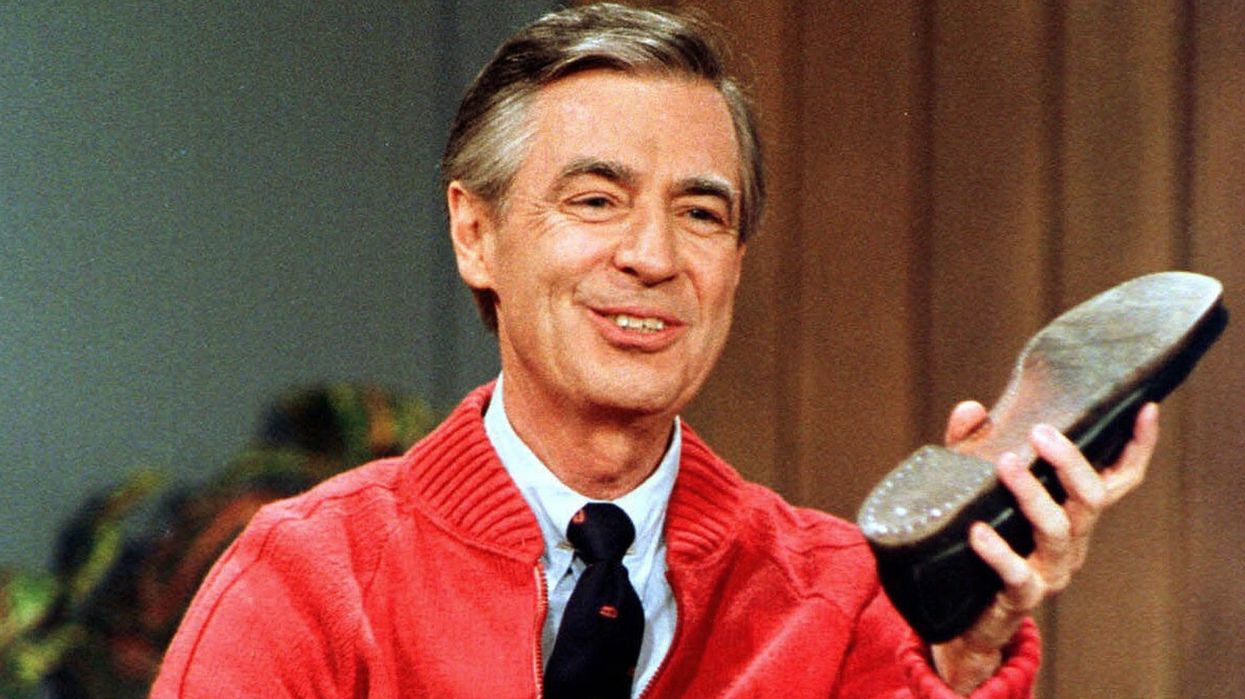
"What we see and hear on the screen becomes who we are," says Fred Rogers in Morgan Neville's documentary, Won't You Be My Neighbor, about the cultural icon. It's a sentiment that eluded the mainstream in Mr. Roger's time, even as America began to realize the immense power and potential of television. And so Rogers created Mr. Roger's Neighborhood, an antidote to the vapidity of popular television, and the first show of its kind. From his low-budget set in the studios of WQED-TV in Pittsburgh, Rogers proved that popular television did not have to be mindless, sensational entertainment; rather, it could be built of everyday kindness, empathy, imagination, and community.
Neville, the Academy Award-winning director of 20 Feet from Stardom, focuses his film on Roger's compassionate philosophy, highlighting the tension that arose between the television icon's ideas and the chaotic indifference of the world in which they existed. Roger's puppets helped children comprehend the difficult realities of life, from war to assassination to the death of a pet. In gentle tones, they espoused virtues of civility and self-acceptance. And most of all, they reminded children that they were loved.
No Film School sat down with Neville prior to the film's premiere to discuss how he avoided depicting Fred as a saint, how he imbued the film with dramatic tension when the story otherwise appeared to be one-note, and why right now is the best time in history to be a documentary filmmaker.
No Film School: Why make a film about Mr. Rogers?
Morgan Neville: Essentially, I met people that [had known] him, and every time he came up, it surprised me. Whatever I learned about him was something I didn't expect. And there were a number of these instances. So there was this aggregation of these surprising details about Mr. Rogers that somehow led me to watching something on YouTube, then going down a rabbit hole late one night watching speeches that he gave. There was something that just hit me like a ton of bricks watching him give these speeches: I don't hear this voice anywhere in our culture. How do we get more of this voice in our culture?
"My challenge: to purge all cynicism from myself and lean into the sincerity and the vulnerability of this message."
It wasn't about nostalgia at all. I'm not a big fan of nostalgia. It was like, "How do we take these essential lessons and apply them to today?" For a long time, I've been talking about this idea of: Where are the grown-ups in our culture? The grown-ups have all disappeared. Who's looking out for the well being of our society? Everybody's so self-interested that they've sacrificed any long-term gain. And hearing voice who's not asking for anything in return, who's looking out for our long-term well being, was something that I just felt like I wanted to put this back in the culture. I thought, "I want to spend time with this voice."
As a filmmaker, you tell people you're working on a Mr. Rogers film and it's almost like a punchline. 'Cause in many ways, he's thought of as a two-dimensional character. Also, he's a character of such sincerity that it seems almost naive to try and make a film about a character like that in a world that's so deeply cynical. And that was my challenge: to purge all cynicism from myself and lean into the sincerity and the vulnerability of this message. And I have to say, it felt really good to do it. So much of our culture runs on appealing to our baser human instincts: fear and divisiveness. And here was somebody who is, to me, like the antidote to all of the things I think have gone wrong in our culture.

Neville: In the beginning, when I first met with Joanne Rogers, I said, "I don't want to make a film about the biography of Fred Rogers. I want to make a film about the ideas of Fred Rogers." To me, those are timeless. You see, there are things in the film from 50 years ago that seem like they're coming from [the news cycle] today. Human nature doesn't change, and he was dealing with fundamental questions of human behavior.
Essentially, I think he broke down the world into two poles. On the one hand, there's love as a motivating factor, and, the other hand, there's fear. And fear left untreated becomes hatred, anger, resentment, and a lot of toxic behavior. Children are growing up trying to figure out the world, and they're fearful of things they don't understand. So, if you can try to explain or allay their fears, then you can stop the other behaviors. I think we're at a moment where we, culturally, stoke fear and repress processing of such emotions. Even though his message was for children, I find it deeply therapeutic for adults to be reminded to get back to the essentials of how we process fear.
"We need to sound the alarm a little bit to remind ourselves that you can't take the health of our society for granted."
[Fred Rogers] also said that neighborhood is society. How do we treat each other? He's doing a show for two-to-six-year-olds who have no sense of identity; they don't even have a sense of a self, or what it means to be a person. So, he's explaining to children, "This is what it means to be human and this is how you should live with other humans." The most fundamental questions you could have. "This is what it means to live in a neighborhood or society together."
It feels like we've forgotten so many of these lessons, or that we take those things for granted. We forget that living together in a neighborhood is a social contract that must be nurtured. And we assume that we will always live together in a healthy society, even though we're pulling at the fabric of that daily.

Neville: Communities are actually very fragile things. I've talked to friends who have worked on films about Syria and other issues, and you can see how people who are friends or neighbors can suddenly be killing other neighbors. It happens in places you would never expect—middle classes neighborhoods in Damascus. It can happen anywhere. We need to sound the alarm a little bit to remind ourselves that you can't take the health of our society for granted. You can't play against it again and again with divisiveness, anger, identity politics, and everything else that I feel is not helpful, because it's pulling us apart rather than together.
So, as a filmmaker, if I can introduce a little bit more of that back into the culture, that's good. You never expect your films are gonna make any difference, but you do them because you hope they will regardless. The thing Fred says in the film that I think a lot about is: "My mission is to make goodness attractive. Real honest to goodness goodness. Not Pollyannaish stuff," I think he says. And I feel like there's both a need for that and a hunger for that.
"Mr. Rogers is a character who, on the surface of things, never changes. There's no dramatic tension. So there were some inherent issues going in."
It's been encouraging to see how many people are responding to the film and even reconnecting with Mr. Rogers as a symbol for a lost reminder of kindness. I call it radical kindness. I think Fred himself would call it grace—that was the idea he talked about the most in terms of doing good to others with no expectation of anything back. That's essentially what it is to be graceful, and we live in disgraceful times.
NFS: We've lost grace, or radical kindness, as something to strive for.
Neville: Yeah. People think it's quaint. It's like talking about unicorns and rainbows or something. It's not! It's like oxygen. It's something we should never take for granted even though it will always be there around us.
NFS: So, how did you approach the interview process and building the narrative of the film around this idea?
Neville: Part of it is that Mr. Rogers is a character who, on the surface of things, never changes. There's no dramatic tension. So there were some inherent issues going in. And I was unsure, in the beginning, before I decided to make this film, where it was gonna go.
When I first went to Pittsburgh, I went to the Fred Rogers Center and I read about the Bobby Kennedy assassination special, which only aired one time. It was never repeated. And so it couldn't be seen except there. I said, "Can you please play me that episode?" And they did. And at the end of that, I said, "I want to make this film."

Neville: Any doubts I had about dramatic tension or depth or complexity were gone. In that moment, I saw that this was the tip of the iceberg. And what you also realize is the deeper you look at Fred, you do see a lot of changes. The show is so consistent, but if you actually really look at what he is doing, it becomes much more strident, and dynamic, and taking on heavier and heavier issues. He realized the kind of platform he had and used that platform.
And that the real dramatic tension he had in his life was really between him and the world, which wasn't paying attention. He was racked by doubt about if he had done enough. In some ways, I think of him as like a bit of a tortured artist; he really doubted himself and the efficacy of his message. And that humanized him. I think it was crucial.
"He was an incomparable cultural character who did a show that is unlike anything else in television history."
The thing I was trying to avoid the most—and I hope this came across—is I didn't want to sanctify him. So many biographical documentaries dip into hagiographies. And Fred Rogers, in some ways, is the most sanctionable character you could possibly imagine. But to sanctify him is to keep him in a two-dimensional box, and to not appreciate the struggle and the human element of what went into his work. Mr. Roger's Neighborhood was not something that he just waved his hand and it happened. It was something that he labored incredibly hard for, and struggled with, his whole life. I think that reminds us that good works take very human struggle.
NFS: Not only that, but he also underwent a character evolution. It's easy to imagine him having always been who he was at the end of his life. But you watch him struggle with very specific instances of opening himself up to the way in which society is changing to embrace different kinds of people. And that's great to watch.
Neville: Yeah, it was very interesting. The only way to really learn about a subject is to talk to people. I probably did over 30 interviews, and I think we used less than 15. I just needed to learn from people. So I interviewed a lot more people than are in the film, and I interviewed some people a couple of times.

Neville: They all thought that Fred was the most unique person they'd ever met. He is singular in so many ways. We talked about it in the film—he was just an incomparable cultural character who did a show that is unlike anything else in television history. It was all uniquely a reflection of his worldview. The television show was just a way of him spreading his message. But it wasn't because he ever wanted to be famous or on television.
NFS: Recently, in an interview, you said that "documentaries used to be the spinach of filmmaking, and now you're the cool kids." How do you think the documentary universe is expanding, specifically?
Neville: Over the past few years, access to documentaries has changed. People, given the choice of non-fiction storytelling or fiction storytelling, will choose non-fiction just as much as fiction. So, I think it's both a question of audience and access.
And on the other hand, just filmmaking just getting better and better. Now, we're in this very interesting era of long-form non-fiction storytelling, whether it's Wormwood or OJ or Wild Wild Country, or these other multi-hour documentaries. There are so many different ways of doing really innovative long-form and short-form non-fiction storytelling. We still have more to learn.
Narrative filmmaking feels like it's in a rut. Documentary storytelling is just starting to explore the boundaries of what it can do. Real life is so much more messy than movie life. That there were things that happened in real life that if you were to script them, people would say, "Oh, that would never happen." So, that idea that you're allowed to lean into the messiness and the unpredictability of storytelling because the real world is incredibly unpredictable... that, to me, is really exciting. I think it's an amazing time right now to be doing documentary.
For more information on 'Won't You Be My Neighbor,' click here.

